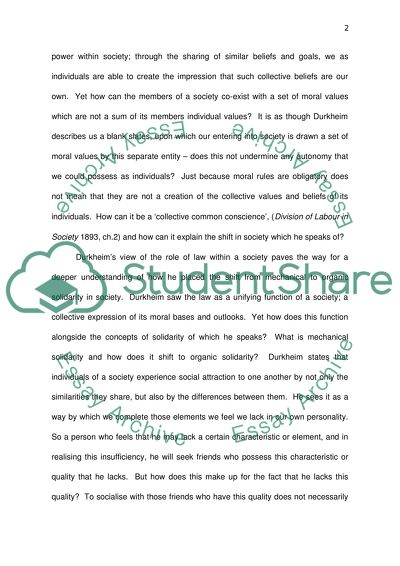Cite this document
(“How convincing is Durkheim's arguement that organic solidarity is a Essay”, n.d.)
How convincing is Durkheim's arguement that organic solidarity is a Essay. Retrieved from https://studentshare.org/miscellaneous/1566009-how-convincing-is-durkheims-arguement-that-organic-solidarity-is-a-normal-development-of-the-division-of-labour-in-society
How convincing is Durkheim's arguement that organic solidarity is a Essay. Retrieved from https://studentshare.org/miscellaneous/1566009-how-convincing-is-durkheims-arguement-that-organic-solidarity-is-a-normal-development-of-the-division-of-labour-in-society
(How Convincing Is Durkheim'S Arguement That Organic Solidarity Is a Essay)
How Convincing Is Durkheim'S Arguement That Organic Solidarity Is a Essay. https://studentshare.org/miscellaneous/1566009-how-convincing-is-durkheims-arguement-that-organic-solidarity-is-a-normal-development-of-the-division-of-labour-in-society.
How Convincing Is Durkheim'S Arguement That Organic Solidarity Is a Essay. https://studentshare.org/miscellaneous/1566009-how-convincing-is-durkheims-arguement-that-organic-solidarity-is-a-normal-development-of-the-division-of-labour-in-society.
“How Convincing Is Durkheim'S Arguement That Organic Solidarity Is a Essay”, n.d. https://studentshare.org/miscellaneous/1566009-how-convincing-is-durkheims-arguement-that-organic-solidarity-is-a-normal-development-of-the-division-of-labour-in-society.


